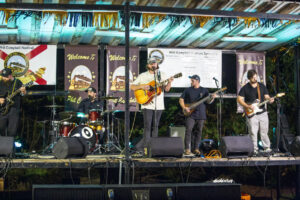Conflict hindered Hyundai recruitment
By Staff
As a precaution, Rohrlack said, two additional sites were submitted for the client's review.
Exhaustive engineering studies
Over a seven-month period beginning in August 2001, MDA paid Jackson-based Waggoner Engineering more than $212,000 for exhaustive studies on improvements to roads, utilities, water and sewer. These engineering costs represented the bulk of $386,000 the state spent trying to attract the South Korean auto maker, according to The Associated Press.
MDA did not seek such detailed engineering work at any of the other potential sites all of which had some problems including a site on I-20/59 near the eastern Lauderdale County community of Kewanee.
In an interview with The Star, Rohrlack said he was told following a January site visit by MDA staff, Hyundai officials and consultants that the land at Kewanee was "squishy."
Rohrlack said he personally did not make the trip, which others associated closely with the recruitment attempts described as a hastily arranged tour of the East Mississippi site.
MDA also paid for a labor market survey in the Jackson metro area. The study found "there are sufficient numbers of workers to accommodate very large operations" and that the the available workforce was "fully capable" of meeting Hyundai's needs.
Rohrlack said Hyundai "kept leading the state back to Pelahatchie."
But questions were being raised as far back as November and December 2001, underscored by the pivotal Feb. 5 meeting among Hyundai's president, Musgrove, Rohrlack, Pascagoula attorney Richard Scruggs, representatives of U.S. Sen. Trent Lott, and lawyers and consultants from both sides.
Union questions
Mississippi officials were also apparently dealing with some outdated, if not outright erroneous, information concerning union membership in the state, information economic developers believe was highly prejudicial to Mississippi's efforts.
Hyundai was given information that indicated a 27 percent union membership rate. Mississippi has a union membership rate of about 7 percent, Musgrove reportedly told the Hyundai president at the Seoul meeting.
Rorhlack told The Star he could not explain how the information came to be collected and presented to Hyundai, but was trying to find out.
Musgrove also fought privately with Lott, the Senate Minority Leader, and his staff over specific issues related to Hyundai's recruitment, including the Pelahatchie site. At one point in the recruitment process, relations between Lott and Musgrove grew so strained that Musgrove directed his staff not to communicate with Lott's office.
Rohrlack's contention that the company drove interest in Pelahatchie is not universally accepted by other officials who see their own roles as just as crucial to successful recruitment efforts as is MDA's.
Project Beach'
The Hyundai project code-named "Project Beach" was hardly confidential. Rohrlack said he overheard conversations about the project, by name, while he was dining in a Hattiesburg restaurant.
Rohrlack and Musgrove insist that MDA must be the driving force behind industry recruitment efforts. When asked by The Star how he proposes to bridge the gap between sensitive economic development projects and political egos, his one word answer was "confidentiality."
Of the Hyundai project, Lott said: "I think the result speaks for itself. Why would Hyundai have selected the Pelahatchie site and then when they decided to take Mississippi out of the competition say that the problem was the site, that the physical site was a problem?"
U.S. Rep. Roger Wicker, R-Miss., and U.S. Chip Pickering, R-Miss., reinforced Lott's comments that other sites in Mississippi deserved consideration.










